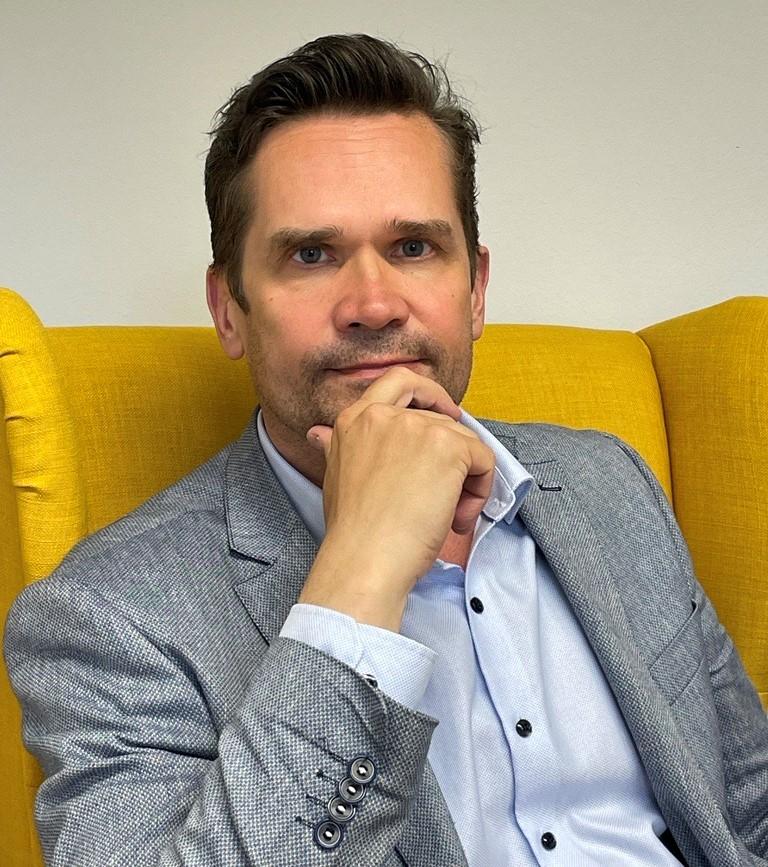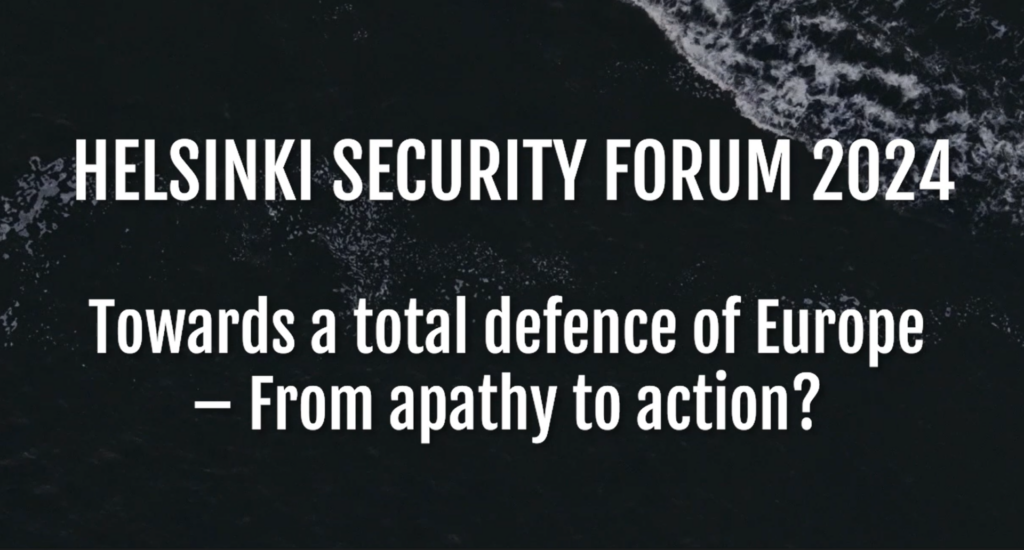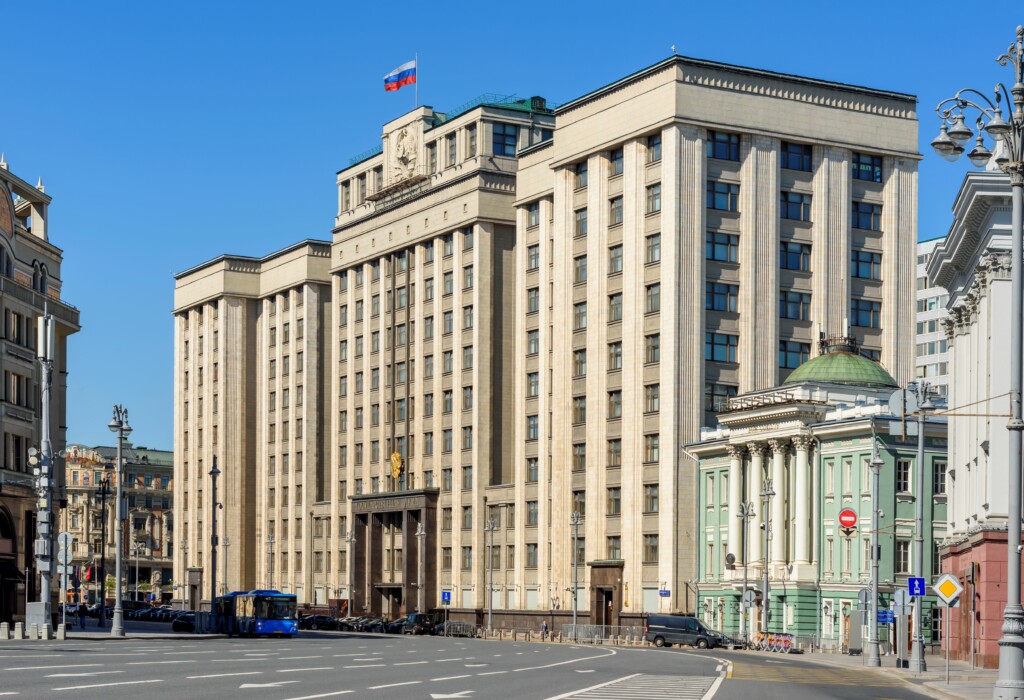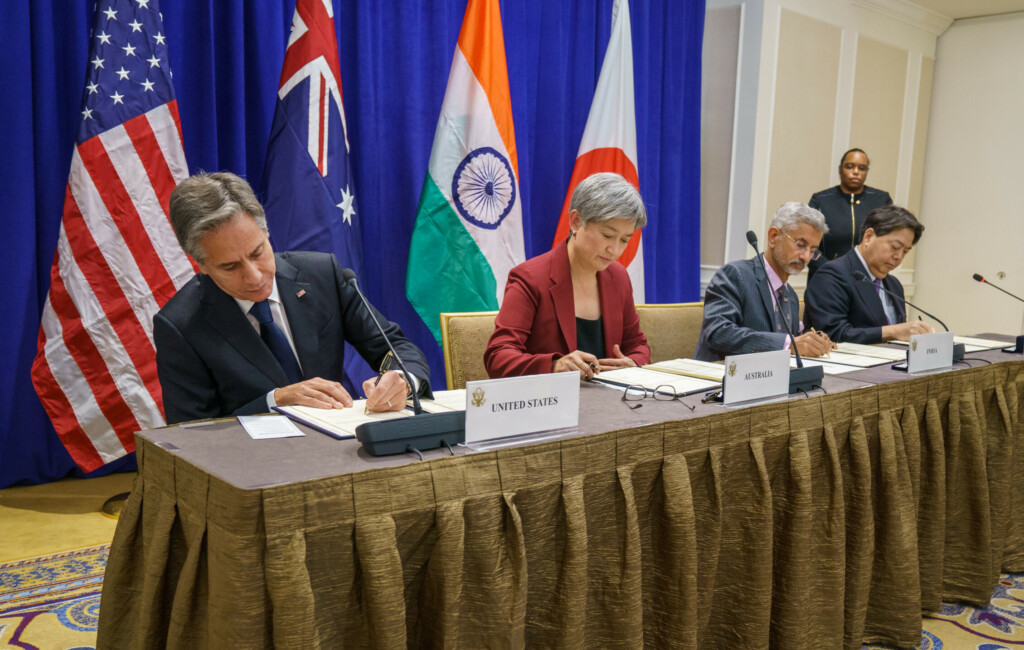Publications

Mika Aaltola – Maintaining Western democratic solidarity, momentum and spirit in the face of Russia’s decline and regression
Mika Aaltola, Director of the Finnish Institute of International Affairs (FIIA)
– We are living through a time which provides a unique setting for organising Finland’s first international security conference, the Helsinki Security Forum, at the topical intersection of the Arctic, the Baltic Sea, and the Eastern and Northern edge of Europe. It is an era of, on the one hand, volatile great power relations, on the other, rapidly evolving modes of cooperation. It is a time when we have many questions – some answers – and a dire need to discuss the current security environment and where it is heading.
Europe is facing the largest scale war within its borders since the Second World War. The current situation exhibits both demonstrated capacity for vertical escalation as well as a growing potential for horizontal escalation. Ukraine has been able to hold off Russian maximalist and expansionist plans – yet the war rages on.
One key theme in the West has been the sustainability of the momentum for cohesion among Western democracies and the strength of the transatlantic bond. Hesitations on the topic stem from the nature of the EU and NATO, as well as from the democratic vulnerabilities that Russia has effectively been abusing, already before the war. However, geopolitical threats have the tendency to unite and mobilise.
Internal divisions have been a key driver in history – indeed, many examples exist. When the Goths headed by Alaric were besieging Rome in the year 410, it has been suggested that internal dissenting elements opened the outer gate of the city for the invaders:
”But they were unable to guard against the secret conspiracy of their slaves and domestics, who either from birth or interest were attached to the cause of the enemy. At the hour of midnight, the Salarian gate was silently opened, and the inhabitants were awakened by the tremendous sound of the Gothic trumpet. Eleven hundred and sixty-three years after the foundation of Rome, the Imperial city, which had subdued and civilized so considerable a part of mankind, was delivered to the licentious fury of the tribes of Germany and Scythia.” (Gibbon 2010, I, 31).
Historian Edward Gibbon, cited above, reminds us of the nature of a sudden regressive fall of a body politic. His model is predated by more ancient historians such as Thucydides. They have presented us with grimly realistic accounts of regressive processes that have engulfed and brought down empires and other political entities over the course of history. Such reminders echo in our times as well.
It is crucial to improve understanding of the nexus between internal domestic division and external foreign action, which has hitherto received relatively little modern attention. There are notable exceptions, of course. However, Paul Kennedy’s 1987 work, The Rise and Fall of the Great Powers, for example focuses on economic and military drivers of the rise and fall narrative and does not take fully into account the role of the cognitive and irrational processes integral to the overall phenomenon.
This type of internal regression process, currently also taking place, is useful for providing us with a birds-eye overview of our continent in conflict. It sheds light onto how such an overall confluence of circumstances is regressive, how it weakens states and governance, and how it leads to a spreading and intensifying of the nexus of internal and external drivers which, in turn, take the shape of violence, externalizations, diversions, interferences, and meddling.
These symptoms are clear in the case of Russia – although Russia, tragically, views itself as a rising great power instead of a weakening actor. Such violent blindness is in itself symptomatic of a rash inability to understand one’s own limits, both in a territorial and a cultural sense.
The political regression currently taking place in Russia displays a range of symptoms, proceeding in stages from the relatively stable and steady body politic of the 2005-2012 period to the civil strife and diversionary wars of aggression witnessed today. Suspicions and paranoia are increasingly a part of Russia’s domestic political equation. Active conjecture on presumed enemy aliens, spooks, and colluders are symptoms of the overall downward slide.
However, regression in one major state rarely occurs in isolation. Fifth columns and foreign agents may be mere paranoia, but they can also reflect some authentic underlying woes that are acute in our times, as well.
A part of the overall dynamic is that Western democracies have been internally focused on and concerned about the regressive multi-dimensional polarisation and intensifying tensions between factions of democratic politics. In turn, foreign powers, such as Russia and China, are drawn to signs of democratic weakness by strategic design. Furthermore, they are driven by opportunism as they try to co-opt and abuse these new emergent weaknesses.
More irrational motives also exist. Spoilers are regressing themselves, and, in many cases, they are more politically regressed than their democratic targets. With regard to meddling, they have their own regressive reasons and motivations. The resulting nexus can further intensify mutual regressions and form negative downward-sloping spirals of political failure that are not ultimately under any strategic control, as is the case with Russia’s slaughter of Ukrainians. These events are expressions of Russia’s regressive constitute element and strategic culture, motivated to drag others into the deepening vortex.
Such accelerating dynamics – these downward-sloping spirals – are increasingly characteristic of the political twists and turns in established democracies. The processes in Russia, however, have already assumed a much more drastic form of political repression and international war. These overall tempos and momentums are emotionally engaging and contagious in ways that escape rational models. They can signify complications, entanglements, and open up possibilities of regressive slides. Domestic regression can link up with external surroundings and draw in its major actors, thereby escalating hostilities between them.
At the same time, Russia’s open aggression in Ukraine has forged momentum for solidifying counteraction. Democracies are – at least for now – acting in the spirit of solidarity, contributing to common strategic tasks, and working towards decreasing divisions.
However, anxieties exist on the durability of this progressive momentum and spirit. As a consequence of Russia’s war, interest rates are climbing, and inflation is rising. This can feed political disagreements and result in unpredictable election results. At the same time, Russia’s irrational over-extension is going to exhaust its ability to strategically manoeuvre itself out of the deepening slide.
For the West, it is important to sustain the momentum of democratic solidarity and the spirit of comprehending the high stakes of the situation. In this way, the West can steady its positions – better than a repressive and aggressive Russia can. Stabilisation also allows the West to decouple itself from the potential dangers of the regression and disintegration of Russia.
Stabilising the situation and maintaining positive momentum requires strategic determination. As smaller actors suffer the most under present-day dynamics, it is sensible for them to seek alliances and contribute towards the solidity of strategic actions in their neighbourhood.
Both Finland and Sweden are good examples of what needs to be done. Through joining NATO, these Nordic high-trust societies can take on the role of catalysing Western unity. They have unique strengths when it comes to understanding the role of national unity as a key aspect of security. Their security cultures are based on extreme defence, area denial, and on total mobilisation, should the need arise.
The two countries can also play an active role in building understanding of what dependency on the key lifelines in the Baltic and Arctic seas means as a defence concept. They also view democracy and strong societies as catalysts towards resilience which offers an effective antidote to the regressive impulses emanating from Russia.
Many aspects of European, and especially Northern European, security are currently being “redone”. Redoing entails action – agency – instead of mere idle observation. The first Helsinki Security Forum of 2022 will, thus, be organized under the title “Northern Security Redone”, in order to actively respond to and comprehend the directions of our changing security environment.
***
Mika Aaltola is the Director of the Finnish Institute of International Affairs (FIIA)

Helsinki Security Forum 2024 addresses the need for European total defence
The third annual Helsinki Security Forum (HSF) will be held on 27–29 September 2024. This year’s conference is titled Towards...

for HSF Blog
Rejecting Russian Spheres of Influence
The EU has rejected the language of spheres of influence in favour of an international order based on common rules...

for HSF Blog
Reverberations in the Indo-Pacific of the War in Ukraine
Russia’s war of aggression against Ukraine has had significant ripple effects in Indo-Pacific security dynamics and ongoing great-power competition.